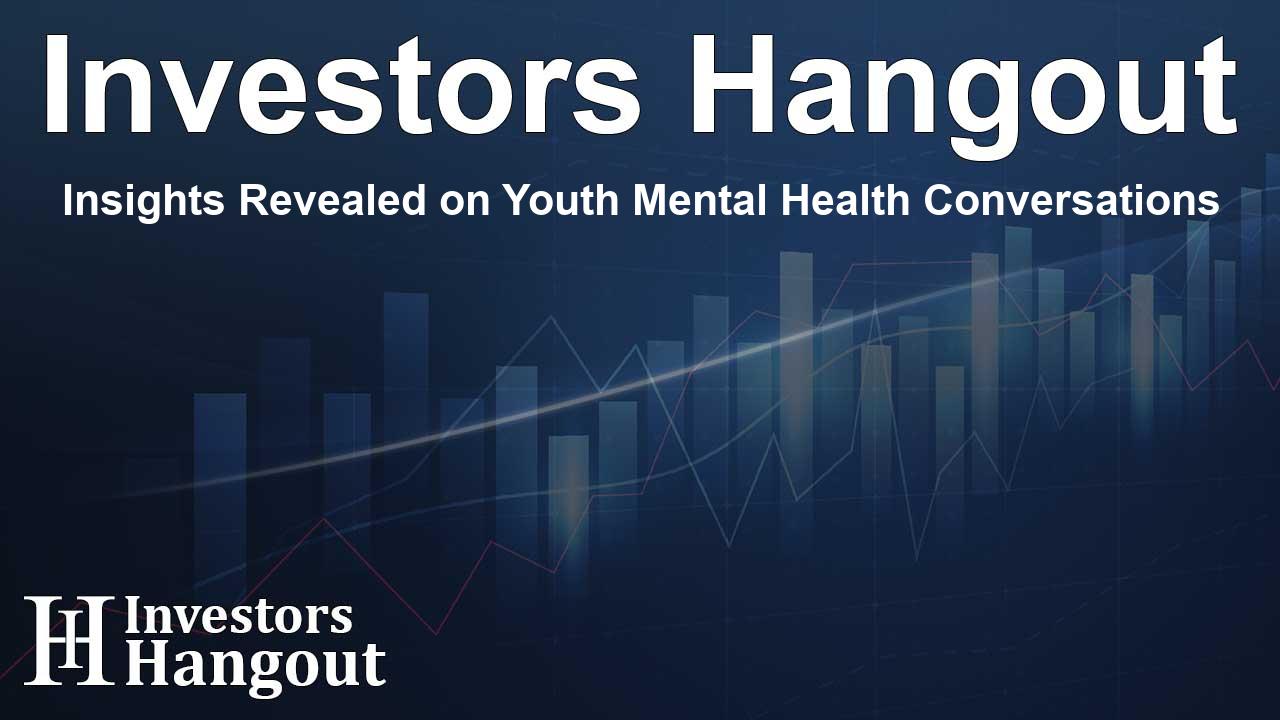Insights Revealed on Youth Mental Health Conversations

Insights into Youth Mental Health Conversations
Nonprofit Shares Data Collected from Depression Education Program
Erika's Lighthouse, a national nonprofit dedicated to breaking the stigma around mental health and delivering free education programs to schools, has unveiled the key findings from the 2024 Help-Seeking Around Mental Health Report. This report draws upon data collected over three academic years from partner schools across the United States implementing their Depression Awareness and Suicide Prevention programs.
Brandon Combs, the executive director of Erika's Lighthouse, expressed concern over the significant mental distress observed in adolescents. He emphasized that early identification and intervention are crucial in preventing suicide. The report illustrates advancements in youth help-seeking behaviors fostered by their educational initiatives. However, it also uncovers the need for more robust support systems in schools predominantly attended by Black and Hispanic students.
Key Findings of the Report
Comfort Levels in Conversations
The report presents several striking findings:
- After participating in the Erika's Lighthouse program, 12% of students felt more comfortable discussing their mental health issues with a trusted adult at school.
- Although 93% of students recognized a teacher as a trusted adult, only half felt at ease discussing their mental health in school settings.
- The rate of students uncomfortable sharing their concerns with trusted adults dropped by 23% from before to after the program.
- Notably, students from schools primarily composed of Black and Hispanic students showed greater comfort level improvements, with 9% and 11% gains, respectively, compared to a 7% increase in predominantly White schools.
- Furthermore, 96% of respondents identified a family member, such as a parent or grandparent, as a trusted adult, with over 75% comfortable having mental health conversations at home.
Importance of Open Dialogue
Youth help-seeking and self-reporting are vital components in supporting the mental well-being of teenagers. Despite these trends indicating progress, the Erika's Lighthouse report highlights pervasive discomfort among young people about discussing mental health issues with adults. Consequently, actionable steps are necessary to mitigate this unease and foster meaningful discussions about mental health.
Understanding the Assessment Methodology
The report utilized a quantitative approach, engaging a diverse range of students in grades 5-12 from various schools across the U.S. Surveys were completed by participants in Level II and Level III Erika's Lighthouse programs, both pre- and post-program. In total, there were 18,077 pre-program surveys and 15,271 post-program surveys collected from 515 schools. This diverse sample included various socio-economic backgrounds and ethnicities, reflecting a broad cross-section of the educational landscape in the United States.
Program Goals and Impact
Erika's Lighthouse conducts one-to-four-day classroom education programs that aim to instill mental health literacy, educate about depression, and promote suicide prevention. The ultimate goal is to reduce the stigma surrounding mental health issues, normalize discussions, and empower students to seek help.
About Erika's Lighthouse
Erika's Lighthouse is a national nonprofit organization dedicated to promoting good mental health for every child. Their mission encompasses providing accessible mental health programs across various school settings. In recognizing that schools play a vital role in every community, their initiatives are strategically designed to educate and empower not just students, but also families and educators about mental health challenges, depression, and suicide prevention.
Frequently Asked Questions
What does the 2024 Help-Seeking Around Mental Health Report address?
The report explores comfort levels among young people regarding discussions about mental health and identifies key findings related to trust and help-seeking behaviors.
Who conducted the survey referenced in the report?
Erika's Lighthouse conducted the survey with students who participated in their programs focused on mental health education.
What are the primary findings regarding youth comfort in discussing mental health?
The report indicates that a significant number of students feel uncomfortable discussing mental health with trusted adults, despite recognizing them.
How can schools improve youth mental health conversations?
Implementing more comprehensive initiatives around depression education and encouraging open dialogue can help reduce discomfort among students.
What role does Erika's Lighthouse play in schools?
Erika's Lighthouse provides mental health education programs aimed at reducing stigma and promoting healthy conversations within school communities.
About Investors Hangout
Investors Hangout is a leading online stock forum for financial discussion and learning, offering a wide range of free tools and resources. It draws in traders of all levels, who exchange market knowledge, investigate trading tactics, and keep an eye on industry developments in real time. Featuring financial articles, stock message boards, quotes, charts, company profiles, and live news updates. Through cooperative learning and a wealth of informational resources, it helps users from novices creating their first portfolios to experts honing their techniques. Join Investors Hangout today: https://investorshangout.com/
Disclaimer: The content of this article is solely for general informational purposes only; it does not represent legal, financial, or investment advice. Investors Hangout does not offer financial advice; the author is not a licensed financial advisor. Consult a qualified advisor before making any financial or investment decisions based on this article. The author's interpretation of publicly available data shapes the opinions presented here; as a result, they should not be taken as advice to purchase, sell, or hold any securities mentioned or any other investments. The author does not guarantee the accuracy, completeness, or timeliness of any material, providing it "as is." Information and market conditions may change; past performance is not indicative of future outcomes. If any of the material offered here is inaccurate, please contact us for corrections.